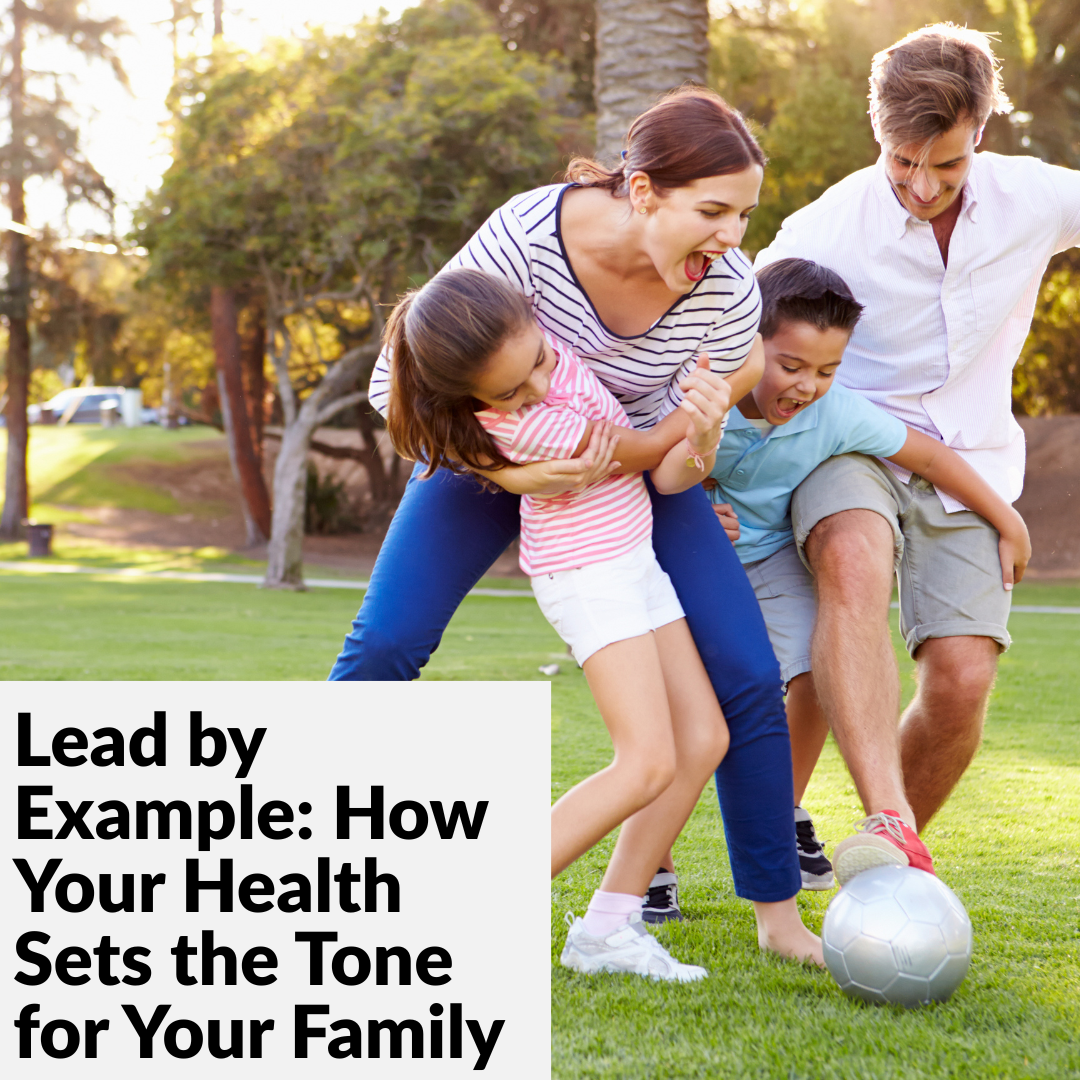
We’ve all heard the saying, “Kids don’t do what you say—they do what you do.” And honestly, it’s true for more than just kids. The people around you—your partner, your friends, your coworkers—notice how you live your life far more than what you preach about it.
When it comes to your health, your actions tell a story. They show your family what’s possible, what’s normal, and what’s worth prioritizing.
1. Your Habits Create the Family Culture
You don’t need to run marathons or meal prep like a professional chef to set a positive example. It’s the consistent, everyday habits that make the biggest impact.
When your kids see you:
-
Choosing to move your body, even when you’re tired.
-
Sitting down to eat a real breakfast instead of just coffee.
-
Saying “no thanks” to things that don’t serve your goals.
They learn that health isn’t punishment—it’s care.
Your energy becomes the culture in your home. When you prioritize feeling good, everyone around you benefits from it.
2. Consistency > Perfection
There’s this pressure (especially for parents) to model perfect behavior. But the truth is, your family needs to see you being human.
They need to see you:
-
Getting back on track after a weekend of treats.
-
Going for a walk when you’d rather sit on the couch.
-
Owning your bad days and starting fresh the next morning.
Consistency teaches resilience. It shows your kids that health isn’t an “all or nothing” thing—it’s something you nurture over time.
3. Make Health a Shared Value, Not a Chore
One of the best ways to lead by example is to make health something your family experiences together.
Try things like:
-
Family hikes or post-dinner walks.
-
Letting your kids help cook or pack lunches.
-
Weekend adventures that get everyone outside.
When health becomes fun and part of your family rhythm, it stops feeling like one more thing on your to-do list. It becomes who you are together.
4. Boundaries Are a Form of Leadership
Leading by example also means setting boundaries that protect your energy. That might mean scheduling your workouts and treating them like any other appointment—or saying no to things that pull you away from your goals. Your family learns that self-care isn’t selfish; it’s what allows you to show up better for them.
You’re not doing this to them—you’re doing it for them.
5. Health Leadership Starts with You
When you eat well, move often, and take care of your mental health, your family doesn’t just see a “fit parent.” They see someone who leads with intention, strength, and self-respect.
And that’s powerful. Because one day, they’ll model that same energy in their own lives.
You’re not just leading your family—you’re shaping their future relationship with health.
Leave a Comment Cancel reply
You must be logged in to post a comment.
0 Comments